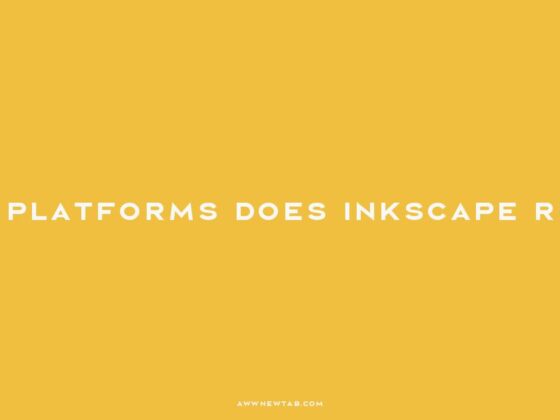Is a Chromebook Really Low-End? Unveiling the Truth Behind Chromebook’s Hardware and Performance – Is A Chromebook Low End? Debunking the Myth and Unveiling the Truth
Are you on the hunt for a new laptop that won’t break the bank? Look no further than the world of Chromebooks. These sleek and lightweight devices have been gaining popularity in recent years, but there’s a common misconception that they are low-end and lacking in power. Today, we’re here to set the record straight and show you why Chromebooks are anything but low-end.
In this blog post, we’ll take a deep dive into the hardware of Chromebooks, uncovering the truth behind their capabilities. We’ll explore their target audience and compare them with traditional laptops, so you can make an informed decision about your next purchase. Plus, we’ll conduct a cost-benefit analysis to highlight the incredible value that Chromebooks offer.
But that’s not all. We’ll also delve into the advantages of Chromebooks over their traditional counterparts, revealing the unique features that make them stand out from the crowd. From lightning-fast boot times to seamless integration with Google’s suite of productivity apps, you’ll discover why Chromebooks are a force to be reckoned with.
So, whether you’re a student, a professional on the go, or simply someone who appreciates a reliable and affordable laptop, this blog post is for you. We’ll address all your burning questions and provide you with the insights you need to determine if a Chromebook is the right choice for you.
Get ready to debunk the myth that Chromebooks are low-end and embrace the truth behind these innovative devices. Let’s dive in and discover the world of Chromebooks together.
Understanding the Hardware of Chromebooks
Chromebooks have carved a niche in the computing world by offering an affordable, cloud-centric computing experience. One of the core reasons for their low cost is the hardware that powers them. Unlike traditional laptops that house high-end processors and vast storage capacities, Chromebooks are designed with lower-end internal components.
Processor and Storage
Most Chromebooks are equipped with processors that are sufficient for web browsing, video streaming, and running lightweight applications. This is because ChromeOS, the operating system that runs on Chromebooks, is less resource-intensive than Windows or macOS. Additionally, instead of large hard drives, Chromebooks typically come with smaller, faster SSDs (solid-state drives) because much of the data is stored in the cloud.
RAM and Battery Life
When it comes to RAM, Chromebooks often have just enough to ensure smooth performance for their designated tasks. This, along with their highly optimized operating system, contributes to their long battery life—one of the key selling points for these devices. A typical Chromebook can last an entire day on a single charge, making it ideal for students or mobile professionals.
Chromebooks and Their Target Audience
Chromebooks are often targeted towards specific user groups. Their ease of use, coupled with their affordable price point, makes them particularly appealing to young users, students, and those who are less tech-savvy. These users typically don’t require high-end computing power and value ease of access to web-based services over complex software applications.
Educational Use
Schools have adopted Chromebooks en masse due to their low cost and simplicity. The devices are easy to manage, durable, and secure, which is essential for educational environments where numerous users access the same device.
First-time Computer Users
For those who are new to computing, the straightforward user interface of ChromeOS is less daunting than more complex operating systems. Chromebooks provide a gentle introduction to many of the same services and applications people use on their smartphones.
Comparing Chromebooks with Traditional Laptops
When comparing Chromebooks to traditional laptops, it’s important to understand both their limitations and advantages.
Performance and Multitasking
Chromebooks are designed for optimal performance with web-based applications and may struggle with heavy-duty tasks. While they are perfect for handling everyday tasks like browsing the web, streaming content, and working on documents, they are not built for resource-intensive applications. If your work involves video editing, 3D modeling, or running complex simulations, a traditional laptop with more robust specs would be a better fit.
Software Availability
Another aspect to consider is software availability. Chromebooks run ChromeOS, which is compatible with web apps and some Android applications. However, they do not support Windows or macOS applications. This means that software like Adobe Photoshop or Microsoft Office isn’t natively available on Chromebooks, although alternatives through web apps or Android apps are accessible.
Cost-Benefit Analysis of Chromebooks
When it comes to cost, Chromebooks are unquestionably more affordable than their counterparts. This affordability stems from both their lower hardware requirements and their design philosophy, which focuses on cloud-based services.
Initial Investment
The initial investment for a Chromebook is significantly lower, with options available for a few hundred dollars. For users whose primary needs are web browsing, accessing online services, and using Android apps, this investment makes sense.
Long-Term Value
In terms of long-term value, Chromebooks can be a wise choice for those who don’t require the full capabilities of a traditional laptop. The savings on hardware are complemented by the reduced need for software purchases, as many of the services are available for free through the Chrome browser.
Advantages of Chromebooks Over Traditional Laptops
While Chromebooks may not compete with high-end laptops in terms of computing power, they offer a set of unique advantages that make them attractive for certain users.
Security and Updates
Chromebooks are renowned for their built-in security features. With automatic updates and sandboxing technology, users are less vulnerable to viruses and malware. This is particularly beneficial for institutions or individuals who value security but may not have the resources to manage it actively.
Portability and Ease of Use
Their lightweight design and long battery life make Chromebooks highly portable, ideal for users who are on the move. Additionally, the simplicity of ChromeOS, with its straightforward interface and minimal maintenance, allows users to focus on their work without worrying about complex system settings.
Final Considerations: Is A Chromebook Right for You?
Ultimately, whether a Chromebook is labeled “low end” depends on the user’s perspective and requirements. For those seeking a device that is affordable, easy to use, and tailored for online and cloud-based activities, a Chromebook is an excellent choice. However, for users with demands for high-performance computing and specific software requirements, a traditional laptop would be a better fit.
Assessing Your Computing Needs
Before making a decision, assess your computing needs. If your activities are centered around the web, with minimal software dependency, the Chromebook offers an efficient and cost-effective solution. On the other hand, if your work or hobbies require high-end software or multitasking with multiple resource-intensive applications, consider investing in a more powerful laptop.
Making an Informed Choice
In conclusion, Chromebooks are not inherently “low end”—they are simply designed for a different kind of use. By aligning your expectations with the capabilities of a Chromebook, you can make an informed choice that meets your needs and budget.
FAQ & Related Questions about Chromebooks
Q: Why would I buy a Chromebook instead of a laptop?
A: A Chromebook is a simpler, cheaper, and more optimized device compared to a laptop. It runs on Google’s ChromeOS and functions like a dedicated Chrome browser on secure hardware. Additionally, it can be significantly cheaper than a Windows PC with the same processor inside.
Q: Which is better, a Chromebook or a laptop?
A: It depends on your needs. Chromebooks are generally less powerful than standard laptops, so they may struggle with big projects or multiple tabs open at once. Additionally, some popular apps like Photoshop may not be available on Chromebooks. Consider your requirements before making a decision.
Q: Why are Chromebooks sometimes laggy?
A: Chromebooks can experience lag due to outdated software. To resolve this, ensure that your ChromeOS, the operating system of a Chromebook, is updated to the latest version. You can check for updates by going to Settings, then About ChromeOS, and selecting “Check for updates.”


